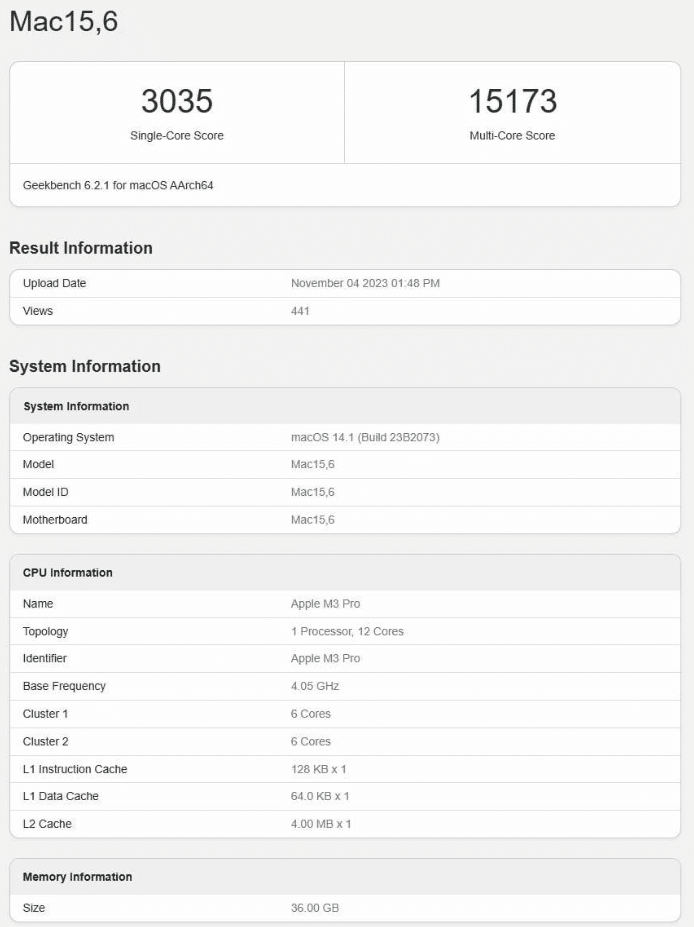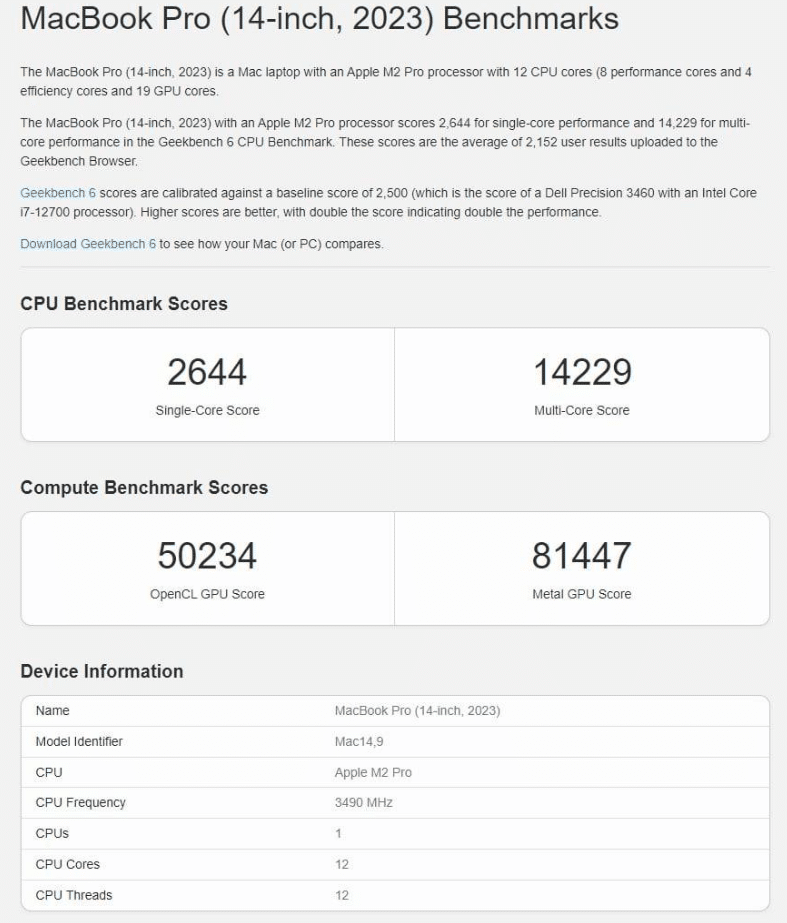Geekbench 6 data shows that the Apple M3 Pro processor in the 14-inch MacBook Pro outperforms the M2 Pro processor. The 14-inch MacBook Pro, identified as Mac15,6, runs macOS 14.1 with 36GB of RAM.
Apple M3 Pro Geekbench Performance
The M3 Pro runs at 4.05GHz with a single-core score of 3035 points and a multi-core score of 15173 points. In contrast, the 2023 14-inch MacBook Pro, featuring the M2 Pro processor, scores 2644 points in single-core performance and 14229 points in multi-core performance.
The Apple M3 Pro exhibits a 14.79% higher single-core performance than the M2 Pro and a 6.63% improvement in multi-core performance. Compared to the 12-core M2 Max processor, the improvements are approximately 10.93% and 4.66%.
The M3 Max processor beats the M2 Max in Geekbench 6, with 17.4% faster single-core and 49.1% faster multi-core performance. It also scores about 20% higher in Geekbench 6 Metal compared to the M2 Max, like the A17 Pro and A16 Bionic’s performance difference.
In the Geekbench 6 Metal test, the highest-end M3 Max version is equipped with a 40-core GPU. It achieves a Metal score of approximately 158,466 points, roughly 20% higher than the M2 Max and just slightly lower than the M1 Ultra, which has up to 64 cores.
In the Metal test, the previous generation M2 Ultra scores about 208,621 points, highlighting the significant gap between the two processors. However, these processors serve different purposes, with one for notebooks and the other for desktops.
Regarding the GPU, the Apple M3 Max’s GFXBench score approaches Mobile’s RTX 4080, only 7% lower. This level of performance is comparable to the desktop RTX 4070, showcasing its power.
In summary, the Apple M3 Pro processor excels in benchmark tests, especially in single-core and GPU performance compared to its predecessor. It provides users with a more efficient and smoother experience.
Read Also: Apple M3 Series Chips Benchmark Scores: Single-Core Performance


